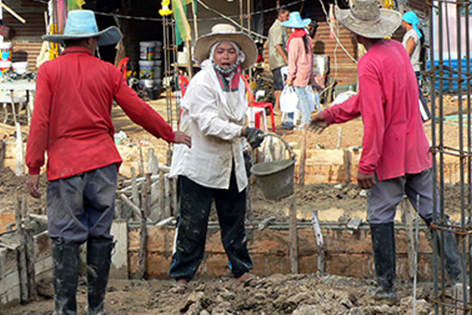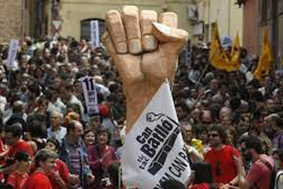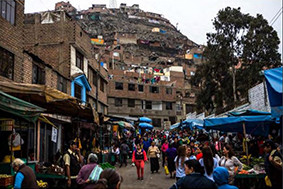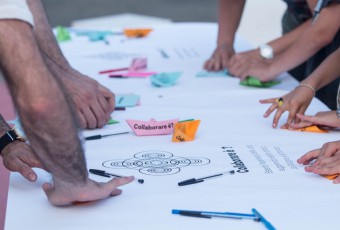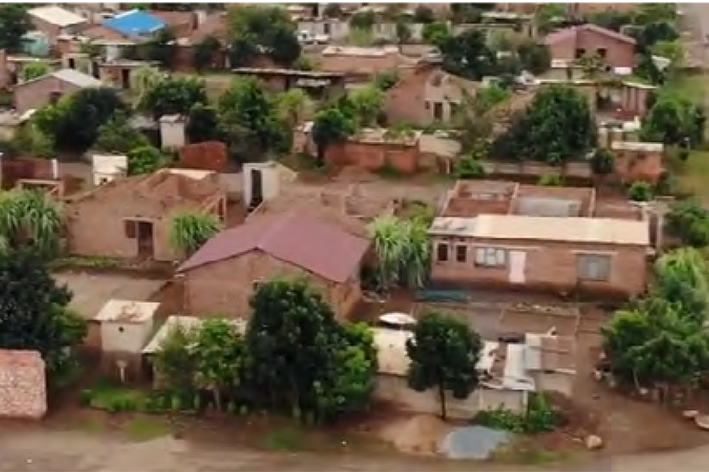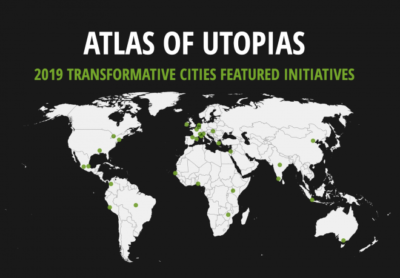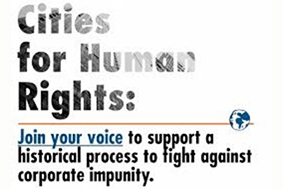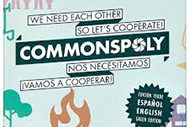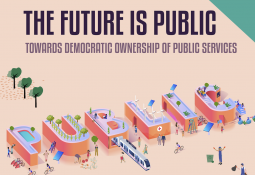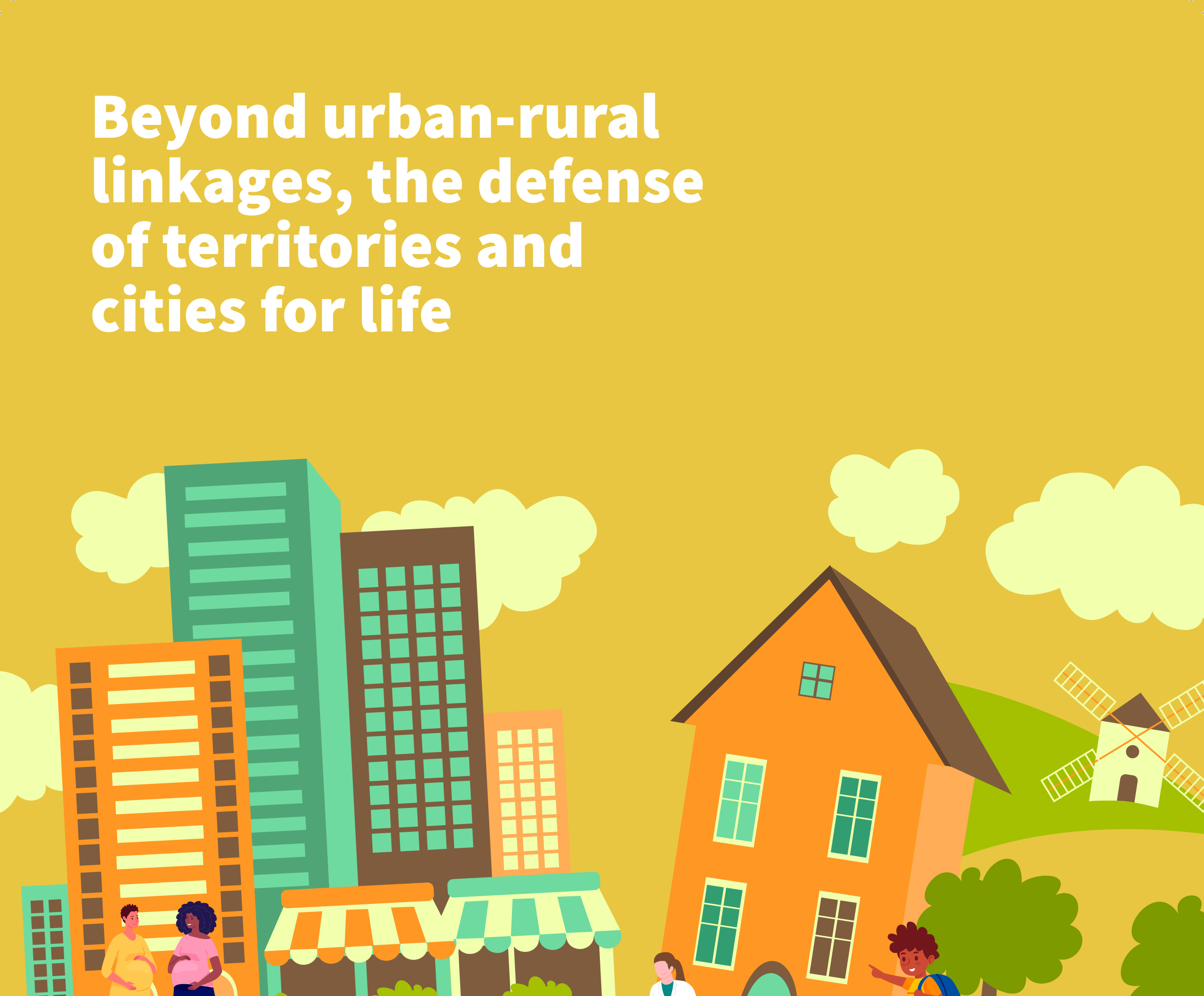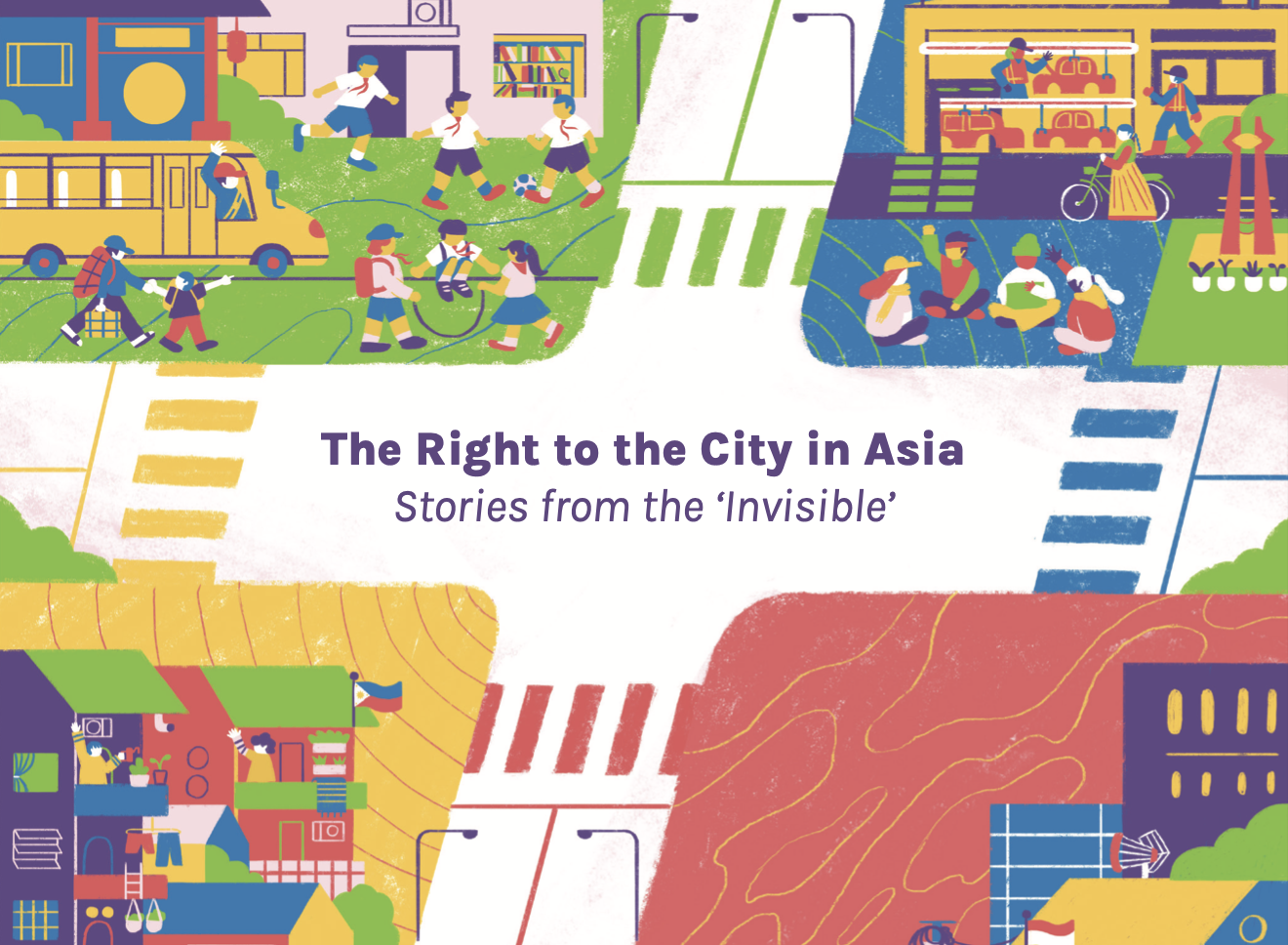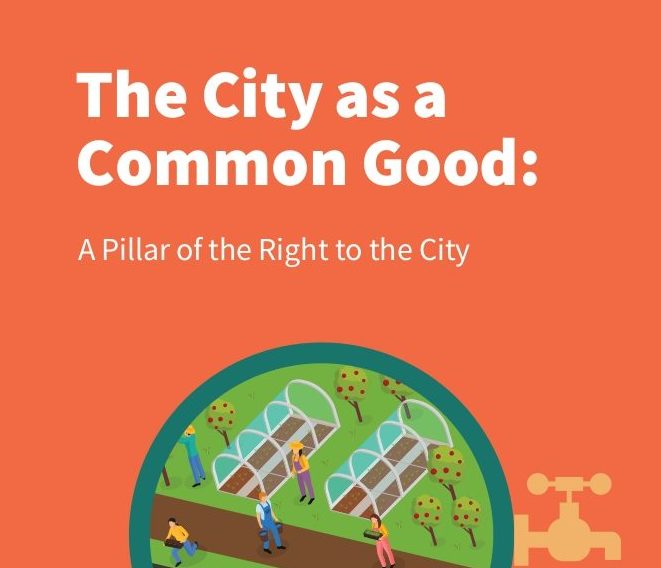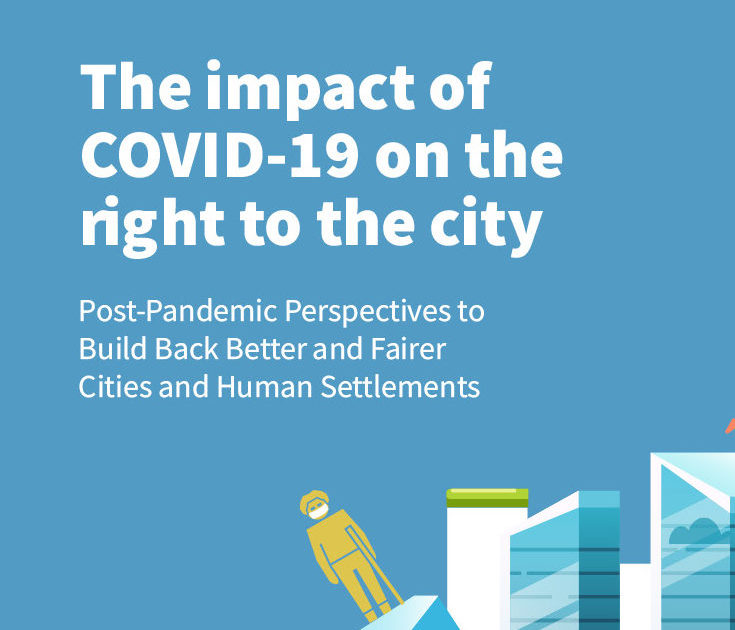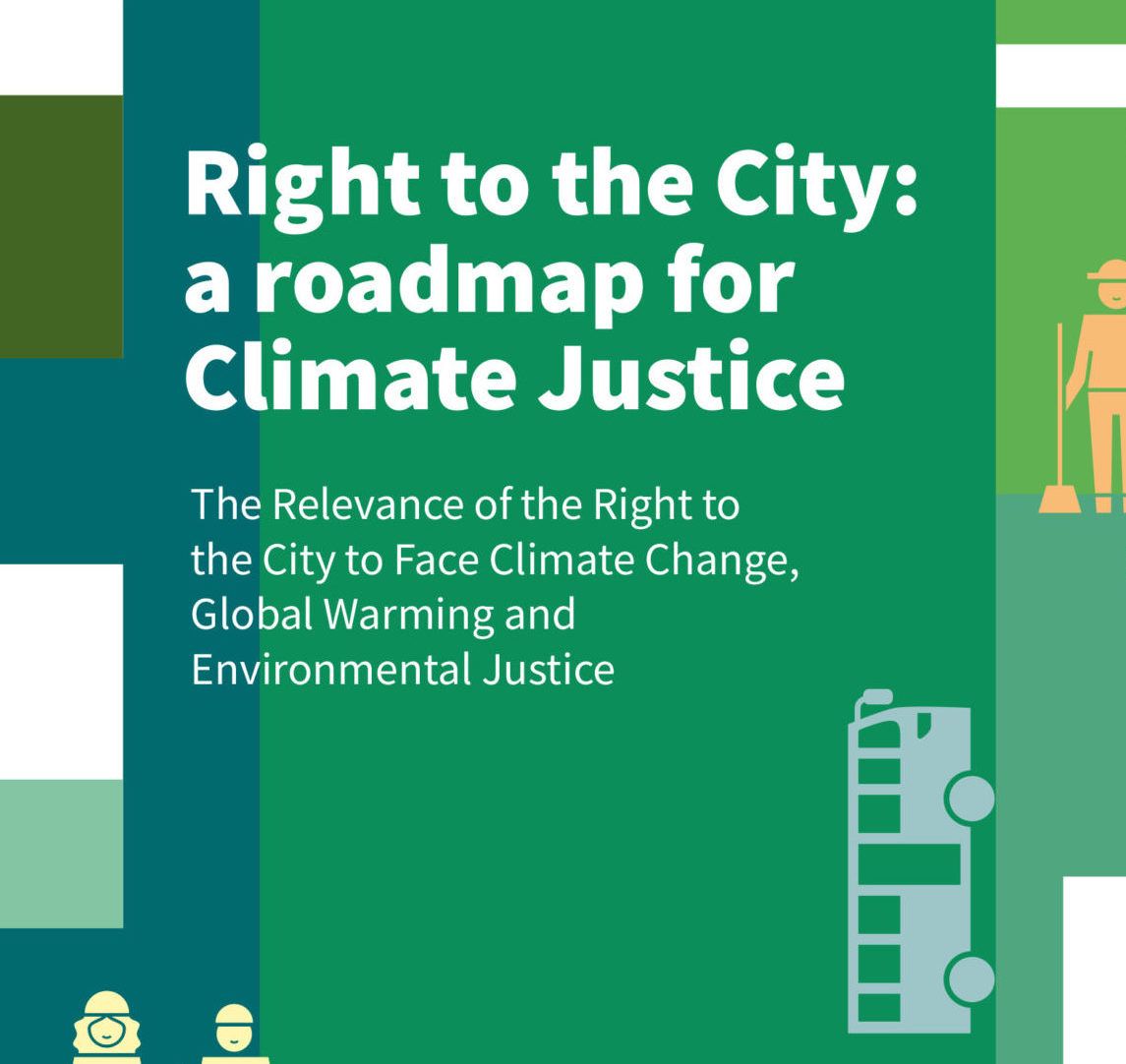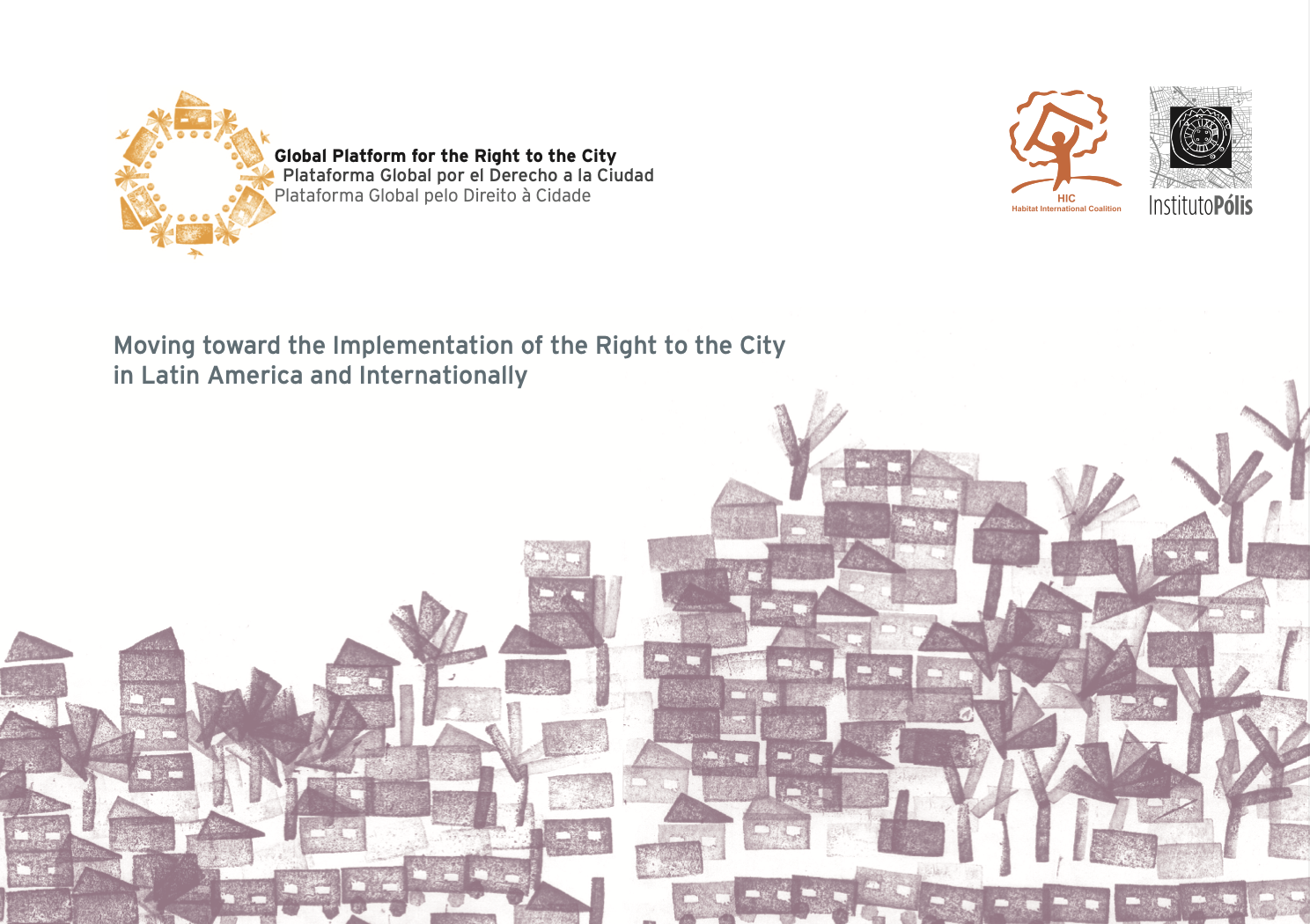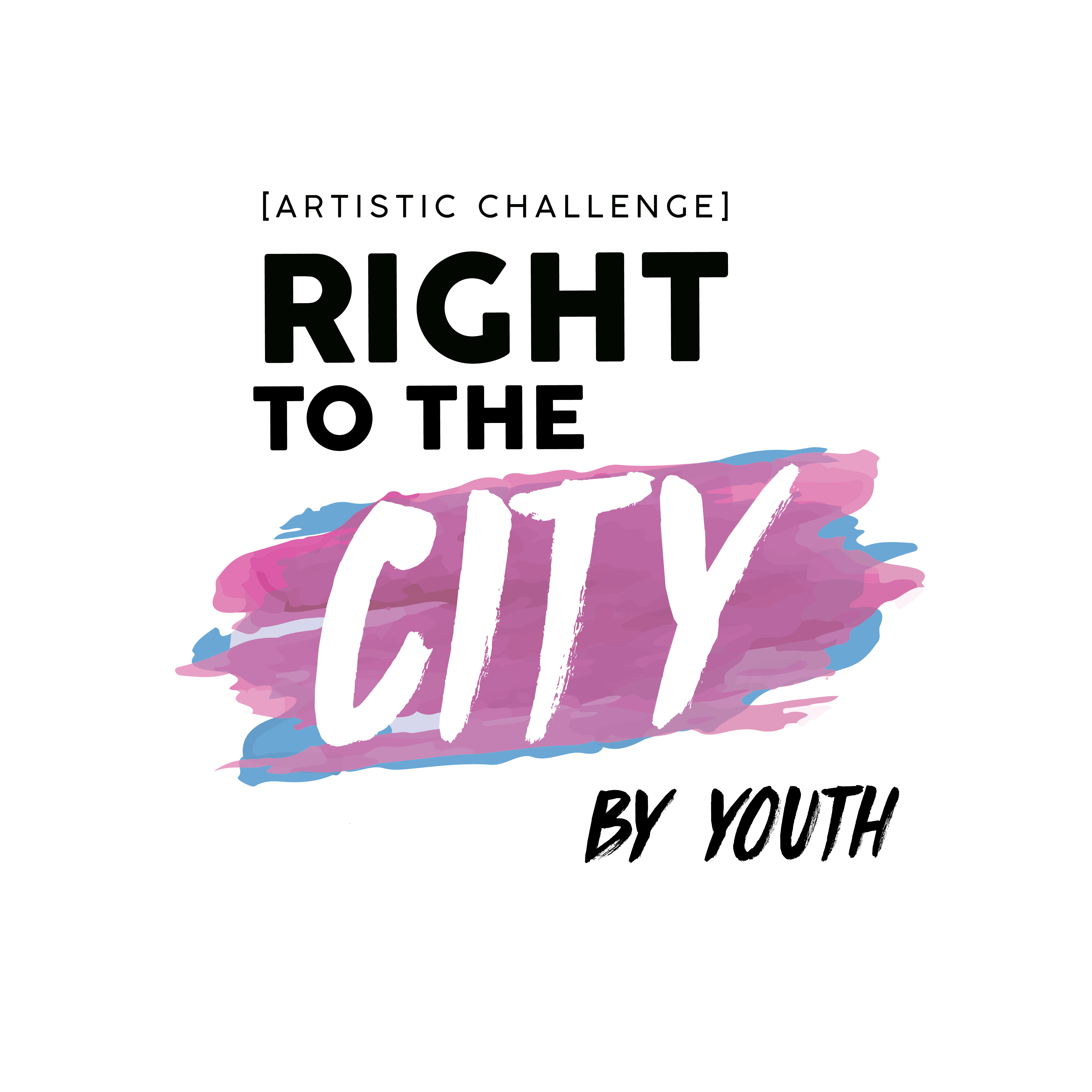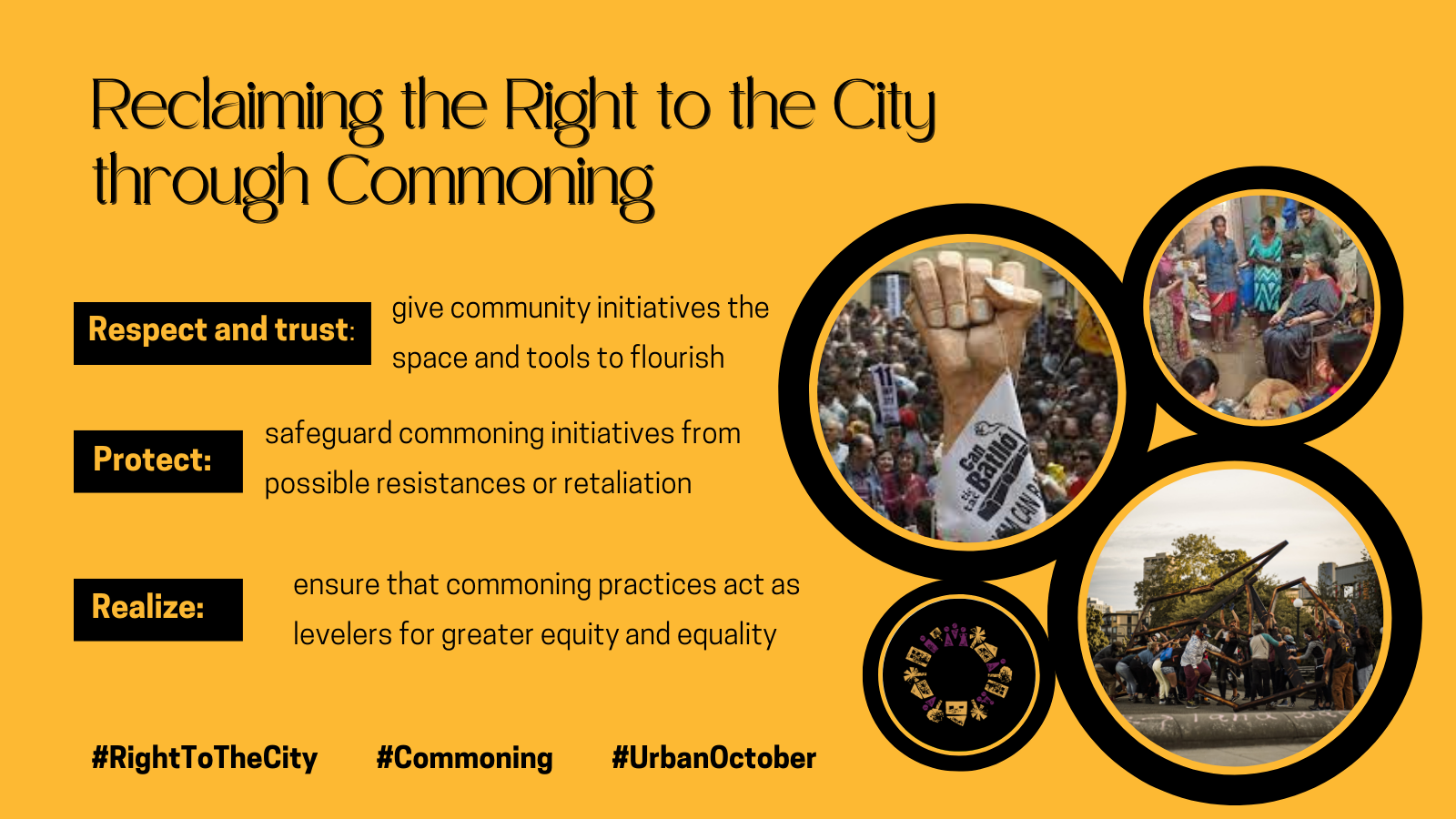
Our Statement
On the occasion of the World Day for the Right to the City (31 October), the Global Platform for the Right to the City calls for the realization of the Right to the City, through the implementation of commoning practices.
As highlighted during World Habitat Day, rising inequalities put an evident impediment to the realization of Human Rights and to achieving cities and human settlements that are just, diverse and can be fully enjoyed by all inhabitants. Tackling these inequalities should be at the top priority of all governmet agendas, addressing how these are expressed under an intersectional and spatial manner.
Any concrete and robust action towards tackling inequalities has to be based on a major revision of the current models that drive economic development, shifting from a logic that is based on maximising profits and commodification of key resources, towards models that drive commoning for the well-fare of the collective.
Thus, this World Day for the Right to the City, civil society organizations and local governments demand the commoning, a paradigm shift and a stepping-stone for realizing the Right to the City.
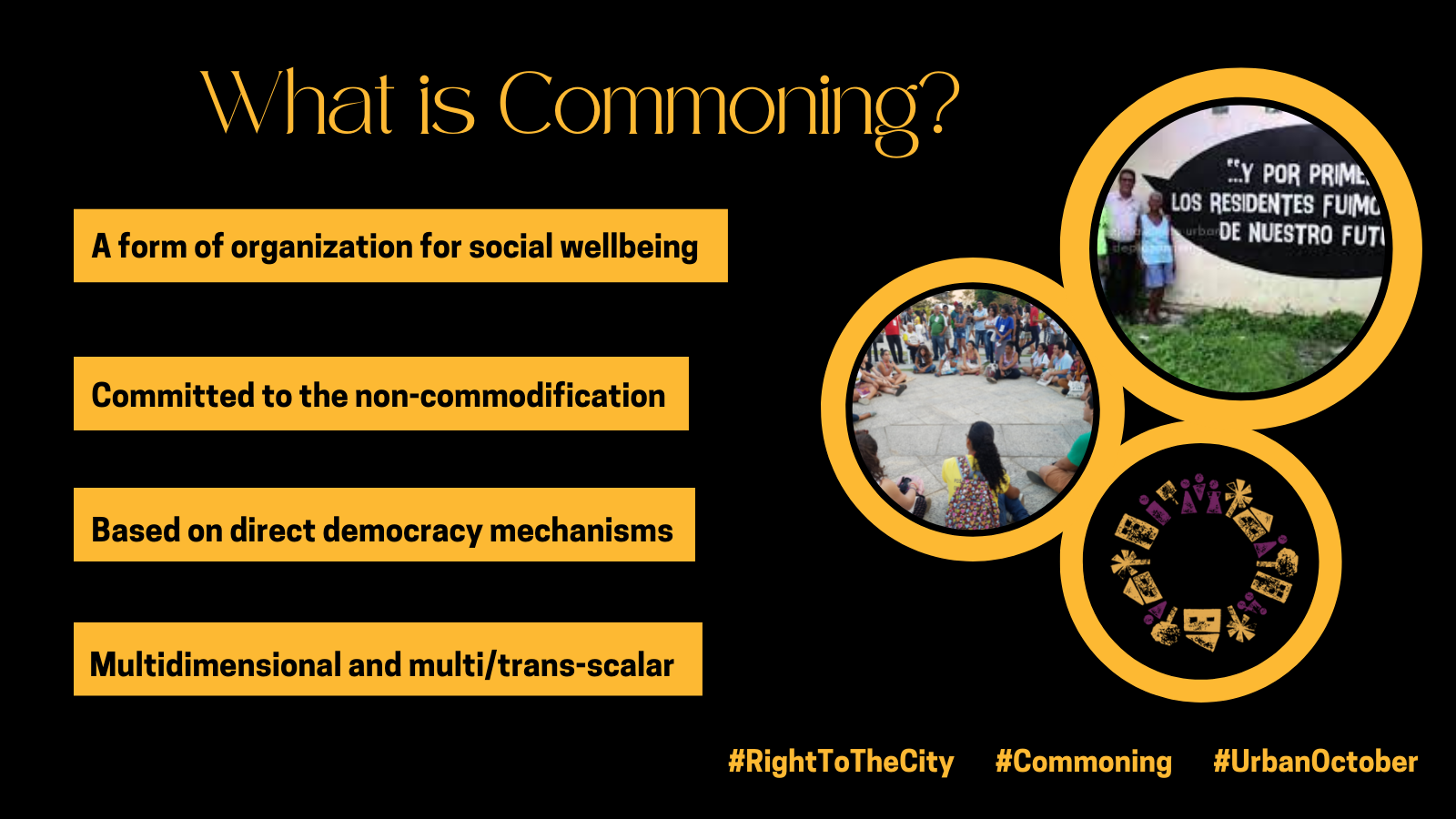
Engaging with a lively and ever-evolving debate, the commons can be understood as material and immaterial goods, resources, services and social practices considered fundamental for the reproduction of life, that therefore can not be commodified but have to be taken care of and managed in a collective way, under democratic principles of direct participation, radical inclusion, and intersectional equity and justice within a continuum of stewardship and commitment with past and future generations and all forms of life on Mother Earth.
Despite their great diversity, commoning experiences usually present three main characteristics:
- a community of commoners committed to overcome social divisions and inequalities, and where skills for self-government can be developed;
- common pool resources, which are not commodified and are used to meet the needs of the community;
- a set of shared principles, agreements and practices, including means of effective communication to create, maintain, govern, protect and reproduce the commons through non-authoritarian, inclusive and horizontal democratic governance.
Common Policy Paper
The Commons Policy paper was intended as a key contribution for the Town Hall process that United Cities and Local Governments is promoting as part of its 7th World Congress to take place in Daejeon, South Korea, between 10-14 October 2022. Its contents emerge from a collaborative effort of civil society organizations, academics and United Nations agencies, in consultation with local and regional governments. The forward looking proposals and recommendations are based on lessons learnt and critical reflection from ongoing initiatives in regions around the world.
This paper includes a set of specific recommendations aimed at creating the conditions for protecting and fostering the commons. Local and global action is conceived as necessarily inter-connected and multi-sectoral, while public support for commoning should be always aligned with human rights obligations and the goal of promoting greater equity, social justice and radical inclusion. Organized in terms of both immediate initiatives and medium-term transformations, the suggestions cover critical areas of articulation and improvement, such as: participatory mapping exercises and peer-to-peer learning; local dialogues between municipal/regional authorities and grassroots groups, enabling regulatory frameworks; supportive public policies, programmes and budgets; public campaigning and engagement at international debates.
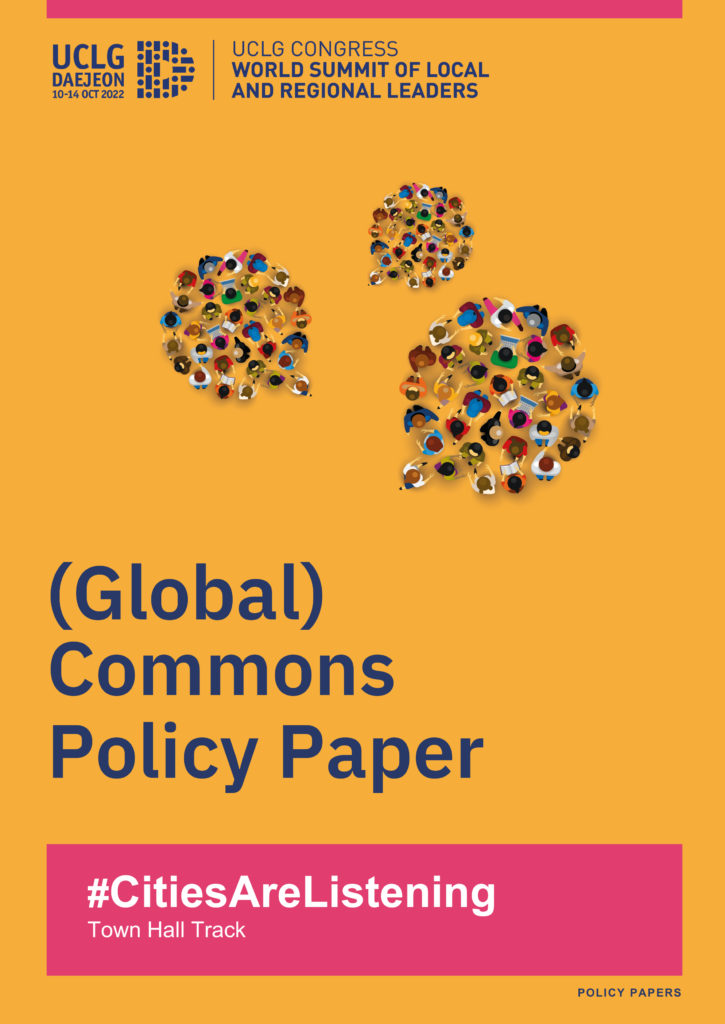
Commoning Practices
Commoning practices are based on direct democracy mechanisms and self-management that strengthen the community.
They are committed to the non-commodification (privatization) of common resources and services.
Caño Martin Pena Community Land Trust
San Juan (Puerto Rico)
Fideicomiso de la Tierra del Caño Martín Peña
The Community Land Trust (CLT) manages the approximately 200 acres of public lands transferred by the government and now collectively owned by the eight communities in the area. The CLT has allowed for the legalization of the relationship between more than 2,000 families and the land on which their homes stand, while also enabling the resettlement of people who lived in high-risk areas.
Baan Mankong Secure Housing Programme
Thailand
By: CODI
The national Baan Mankong “secure housing’ programme is a government-funded initiative, under the auspices of the Community Organization Development Institute (CODI), launched in 2003 that has provided soft loans through savings cooperatives of the urban poor and infrastructure subsidies enabling neighbourhood upgrading at scale across the country.
Barcelona (Spain)
By: Can Batlló association + City of Barcelona
Following decades of inaction, a neighbors’ movement has managed to gain the control of a large community space in a site of a deactivated factory. The association currently has the right to manage the space for 50 years under a novel partnership contract with the municipality.
Vaccine Access for Informal Workers
Thailand
By: HomeNet Thailand and Federation of Informal Workers
HomeNet Thailand and the Federation of Informal Workers (FIT) stepped in to facilitate informal workers’ access to COVID-19 vaccines, negotiating with the Ministry of Labour for vaccine access for 300 FIT members, including migrant domestic workers. The case can help exemplify the notion of commoning as a collective strategy to access public goods (vaccines) and services (health care).
Bologna Regulation on civic collaboration for the urban commons
Bologna (Italy)
By: City of Bologna
Since 2014, more than 280 commoning initiatives have flourished in Bologna supported by a regulation that enables community organizations to develop collective management schemes for urban commons. An agreement is signed with the city to grant the management rights and dedicate support and resources to the initiative under a “public-commons” partnership.
Community-driven informal settlement upgrading
Gobabis (Namibia) and Harare (Zimbabwe
By: Local communities, SDI, local governments
In Namibia and Zimbabwe, local communities and NGOs have partnered with SDI and local governments under community-driven informal settlement upgrading initiatives. The development of the initiative has been community-driven from inception to implementation and is based on incremental strategies.
Global
By: Friends of the Earth, ECOLISE, RIPESS, Habitat International Coalition, Transnational Institute, GPR2C
The Atlas of Utopias gathers the finalists of the three editions of the Transformative Cities People Choice’s Award, which seeks to highlight cities and collectives working on solutions to ensure access to water, food, energy and housing.
Global
By: Cohabitat Network
The ambition of CoHabitat.io is to aggregate data and stories from across the world to show the diversity of existing solutions and initiatives, provide quantitative and qualitative data on community-led housing and to connect the ecosystem of organizations, people and allies that contribute to its expansion.
UK
Common Wealth designs ownership institutions for the new economy, institutions that are democratic by design, inclusive in action, and social in purpose. Systemic change will require a new architecture of ownership, from place-based approaches to strategies to democratize capital at scale, from the commons to cooperatives.
Initiatives promoting policy space for the commons to flourish
Beyond commoning practices in themselves, a series of organizations are working on and fighting for programmes and policies that protect the commons and commoners, advancing towards a paradigm shift that puts the common good before individual profits.
The Shift
A comprehensive framework providing governments and investors with guidance to effectively address the financialization of housing in accordance with human rights law, including guidance on how to regulate institutional investment in housing and to enact legislative protections for tenants.
Binding Treaty on Transnational Corporations and Human Rights
The goal is to put an end to the global loopholes in international human rights law and ensure that corporations are made legally accountable for human rights violations and environmental crimes.
Pathways to urban and territorial equality – GOLD VI Report
UCLG’s 6th flagship report from the Global Observatory on Local Democracy and Decentralization. The aim of the GOLD VI report is to understand the state of urban and territorial inequalities worldwide and call for a step change in local and regional governments’ place in tackling this global challenge.
A non profit, open source board game that encourages a culture of cooperation and questions the violent model of neoliberal privatization.
“Rogue Capitalism”
By FIAN International, Transnational Institute and Focus on the Global South
This discussion paper intends to provide a basis for people’s movements, grassroots activists and other civil society organizations to build/strengthen their knowledge about the process called “financialization,” and to develop strategies to resist, reverse and prevent it.
By TNI and Partners
This collective research has mapped over 1,400 successful (re)municipalisation cases involving more than 2,400 cities in 58 countries around the world. (Re)municipalisation refers to the reclaiming of public ownership of services as well as the creation of new public services.
What is Urban October?
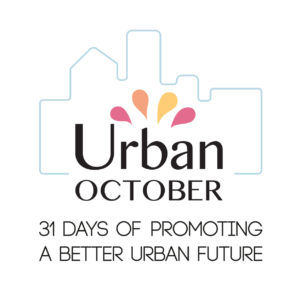
Urban October is a month of exciting meetings, discussions and events focusing the world’s attention on urban issues and sustainable development.
Individuals, organizations, cities, communities and governments at every level are encouraged to take part in activities that highlight the challenges and solutions relating to cities, towns and communities.
Every year, the month starts with World Habitat Day and ends with the World Day for the Right to the City.
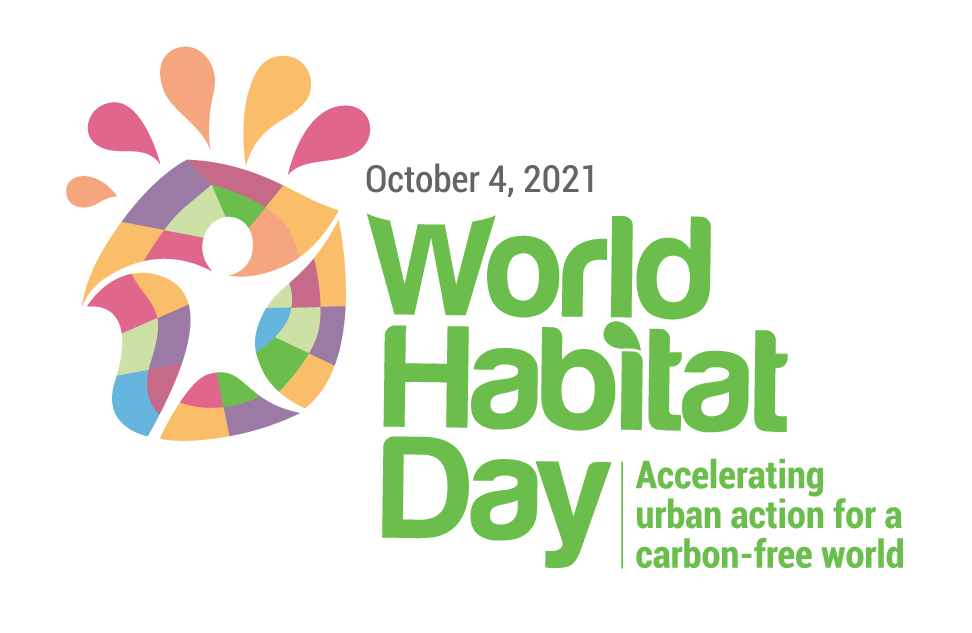
The United Nations designated the first Monday of October, this year it will be on October 3rd, as the annual World Habitat Day (WHD).
This year’s theme is “Mind the Gap. Leave No One and Place Behind”, it will look at the problem of growing inequality and challenges in cities and human settlements.
WHD also reminds us we all have the power and the responsibility to shape the future of our cities, towns, and communities.
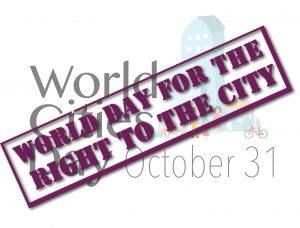
On October 31st, we celebrate the World Day for the Right to the City, reinterpreting the United Nations designation of World Cities Day.
We understand the Right to the City as: the right of all inhabitants, present and future, permanent and temporary, to inhabit, use, occupy, produce, transform, govern and enjoy cities, towns and human settlements that are just, inclusive, safe, sustainable and democratic, defined as common goods for enjoying life with dignity and peace.
About the Global Platform for the Right to the City
The Global Platform for the Right to the City (GPR2C) aims to inspire a better future for all human settlements. The GPR2C is an open, flexible, diverse network of civil society and local government organizations committed to political action and social change through the promotion, defense and fulfillment of the Right to the City at all levels, paying special attention to people and communities affected by exclusion and marginalization.
The GPR2C brings together social movements and organizations, academics, international networks, human rights defenders, NGOs, local governments and others to collaborate towards the emergence of new emancipatory utopias and social bonds in our societies. Together, we give visibility and build dialogue with those already existing worldviews to create new possible collective imaginaries.
The values that guide the GPR2C in forming new communities of emotion and action are: cooperation, collaboration, horizontality, transparency, accountability, equity, participation, people’s empowerment and solidarity.



